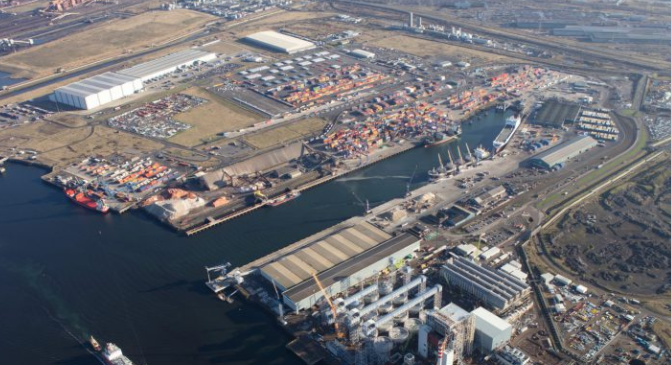The Port of Rotterdam has joined German steel companies thyssenkrupp Steel and HKM in an investigation aiming to set up international supply chains for hydrogen. The initiative seeks to enhance Europe’s efforts to reduce CO2 emissions and become climate-neutral by 2050.
For decades, both companies have been importing coal, iron ore, and other raw materials via their own terminal in Rotterdam, using inland barges as well as rail to transport it to their blast furnaces in Duisburg.
In their efforts to climate-neutral steel making, thyssenkrupp Steel and HKM are now going to require large and increasing quantities of hydrogen to produce steel without coal. Therefore, the partners will explore hydrogen import opportunities via Rotterdam as well as a possible pipeline corridor between Rotterdam and thyssenkrupp Steel’s and HKM’s steel sites in Duisburg. The partnership may serve as a framework for additional initiatives.
[smlsubform prepend=”GET THE SAFETY4SEA IN YOUR INBOX!” showname=false emailtxt=”” emailholder=”Enter your email address” showsubmit=true submittxt=”Submit” jsthanks=false thankyou=”Thank you for subscribing to our mailing list”]
The three partners agree that new, cross-border infrastructure is required to support the energy transition, especially additional pipeline structure is needed. Concrete and significant demand for hydrogen from the steel industry as an alternative to coal as well as the options to store CO2 can work as a stimulus for the realization of this infrastructure.
The Port of Rotterdam is already investigating the import of hydrogen from a large number of countries and regions worldwide. Green hydrogen is a sustainable alternative to coal, oil and natural gas, serving Europe’s and Germany’s ambitions to reduce CO2 emissions and become climate-neutral by 2050, while maintaining their strong industrial backbone.
In addition, the carbon transport and storage system, Porthos, is also being considered as a CO2 storage site for the production of blue hydrogen by the “H2morrow steel” project, which includes thyssenkrupp Steel as a partner as well.
The cooperation between Rotterdam as Europe’s largest port and Duisburg as Europe’s largest steel site can have a signaling effect to establish supply chains for the energy transition, building an important sustainable European industry and logistics cluster,
…the Port of Rotterdam stated.






























































